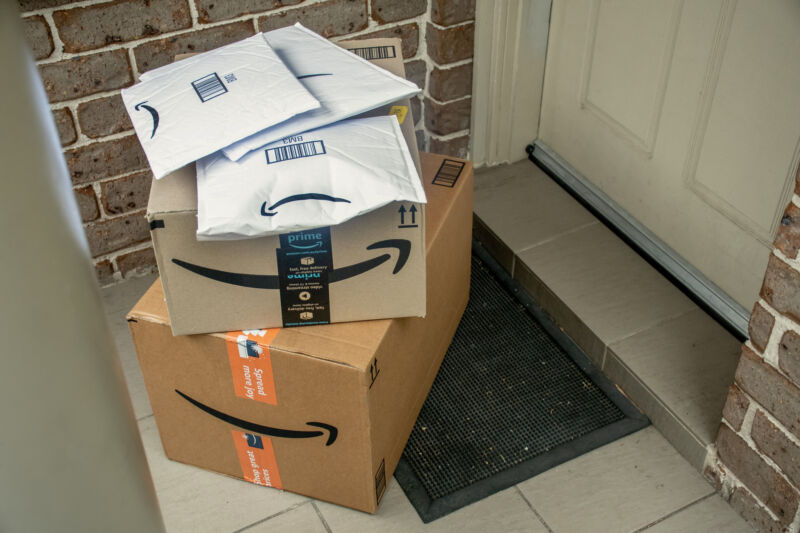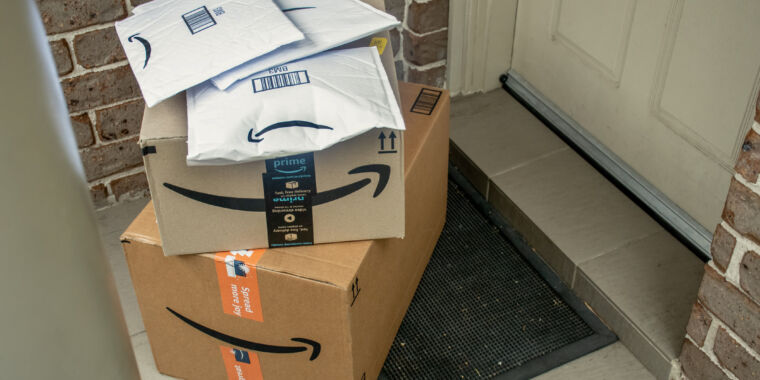Users must prove Amazon ripped them off to revive Buy Box rigging suit
Better come with receipts —
Users want Amazon held accountable for hiding cheaper items with faster delivery.

A court has dismissed a proposed class-action lawsuit alleging that Amazon’s Buy Box was rigged to rip off customers seeking the best deals on the platform.
The suit followed 2022 antitrust probes in the European Union and United Kingdom that found that Amazon’s Buy Box hid cheaper items with faster delivery times to preference Fulfilled By Amazon (FBA) sellers since at least 2016.
As a result, Amazon had to change its Buy Box practices and earn back the trust of customers and sellers, the company said in a 2022 blog. Among changes, Amazon agreed to treat all sellers equally when featuring offers in the Buy Box and to promote a second competing offer when a comparable deal is available at either a lower price or with a faster delivery time.
Those steps apparently didn’t satisfy users who sued: Jeffrey Taylor and Robert Selway. They asked courts to find a “reasonable inference of injury” since they were Amazon customers for years while the price rigging occurred. They claimed that “but for Amazon’s deceptive conduct concerning the Buy Box algorithm, Plaintiffs and members of the Class would have purchased the lower priced offers from non-FBA sellers with equivalent or better delivery.”
But this week, a US district judge in Seattle, Marsha Pechman, told users suing that it wasn’t enough to show evidence of Amazon’s proven misconduct. To satisfy a claim under Washington’s Consumer Protection Act (CPA), they needed to provide receipts from transactions showing that Amazon charged them higher prices while cheaper items were available. Instead, their complaint seemingly contradicted their claim, only showing one example of a Buy Box screenshot that Pechman said showed a hand soap that was offered by other sellers for prices significantly higher than Amazon’s featured offer.
“Plaintiffs have not adequately shown that they made any specific transaction with Amazon, let alone one from the Buy Box,” Pechman wrote in her order. And they “do not allege any specific purchases in which they were deceived via the Buy Box, let alone provide receipts.”
This doesn’t necessarily end the fight to hold Amazon accountable, though. The judge granted leave for users to amend their complaint and either provide “information regarding specific orders (i.e., receipts)” or “make allegations regarding discrete transactions with Amazon.”
Now, the Amazon users have 30 days to track down receipts or otherwise show evidence of specific transactions where they were injured, Pechman wrote.
“Without a showing of a specific transaction, Plaintiffs cannot possibly allege that they themselves were overcharged for any particular purchase—which is the injury in dispute,” Pechman wrote.
It will likely be challenging for the Amazon users to establish that they paid higher prices for items purchased on the platform years ago, and Pechman admitted this much in her order.
“The Court recognizes that Plaintiffs may be unable to ultimately prove that they overpaid for specific purchases,” Pechman wrote, but the CPA requires more than a “mere possibility of injury.”
Ars could not immediately reach plaintiffs’ lawyers for comment. Amazon declined to comment.
Users must prove Amazon ripped them off to revive Buy Box rigging suit Read More »
